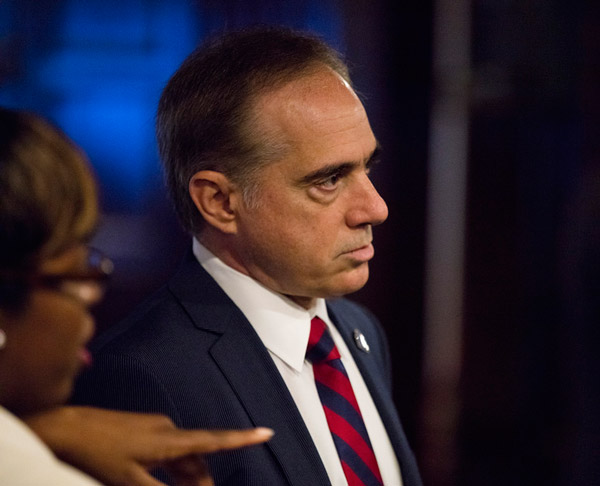In a rather unusual setting: the White House press room – Department of Veterans Affairs’ Secretary, Dr. David Shulkin, announced that the VA “will be overhauling its electronic health records, adopting a commercial product used by the Pentagon that he hopes will improve care for veterans and reduce wait times for medical appointments.”
While many have been pressing for a complete overhaul of the VA’s inefficient medical record system, Dr. Shulkin has taken on the challenging task of dispensing with the VA’s current VistA system in exchange for the Department of Defense MHS Genesis system.
Without going into too many details, Secretary Shulkin showed courage by selecting the MHS Genesis system without competitive bidding, “citing a ‘public interest’ exception. He noted that when the Pentagon did competitive bidding on its system, it took 26 months.”
While I fully agree with his rationale for accelerating the implementation process, I am quite certain that others will question the bidding process. After-all, Secretary Shulkin claims that it would be “unrealistic” to assume that the VA’s new electronic health record would cost less than $4 billion.
Congressional approval is required for this supplemental appropriation, but this overhaul of the VA electronic health records was a key recommendation of the June 30, 2016 Commission on Care Report. I have no doubt that Congress will pass the required appropriation.
Electronic Health Records for Veterans and the VA
On the plus side, a “cloud-based” commercial solution is far preferable to internally-developed and internally-maintained VA legacy systems. Outdated, clunky and inefficient legacy systems at banks and insurance companies have proved to be rather ineffective at keeping pace with technology. Systems at the VA are probably not different.
There is no question, that the VA will be able to operate far more efficiently with state-of-the-art electronic health records. Whether Veterans will benefit from this improved information technology remains a matter of conjecture.
Dr. Shulkin claims that the transition to the MHS Genesis system will take “about 3 to 6 months at the latest.” Recalling the delays in the rollout of the Affordable Care Act online marketplace, I suspect that this is a very ambitious target. I hope to be proven wrong.
Furthermore, I recall that it took members of the medical profession about two years to fully implement the transition to electronic health records to receive reimbursement from Medicare and Medicaid.
While the technology may be fully deployed and implemented within six months, I suspect that it is highly unlikely that 300,000 plus employees at the VA will easily transition to the new electronic health records.
Realistically, I suspect that it will be about 24 months before the first major efficiencies make themselves manifest at the VA.
Privacy and Electronic Health Records
While it makes sense to use the common elements of the Department of Defense (“DoD”) database to populate and communicate with a similar system at the VA, access to individual records creates privacy issues.
Veterans tell SFTT that they are reluctant to share health information with the VA because of privacy concerns. Linking the DoD and VA databases seems – on the surface – to raise additional “privacy” issues.
While the VA can use any number of filters and access restriction to protect the confidentiality of electronic health records, it is evident that a human interface will at some point be required to get actionable medical information to “the right” caregiver.
Getting a person on the phone – let alone “the right person” – has always been a problem at the VA. In fact, SFTT reported late last year that 1/3 of the calls to the VA Crisis Center go unattended.
Is it enough to assume that things will be different this time around?
Conclusion
While the move to electronic health records is yet another great decision by Dr. Shulkin, it remains to be seen whether he has sufficient tools at his disposal to mobilize the staff of VA to reach out to Veterans and help close the divide.
On behalf of our brave Veterans, SFTT certainly hopes so.
ShareJUN
2017


About the Author:
Vietnam vintage US Army officer who honors the brave men and women who serve our country.